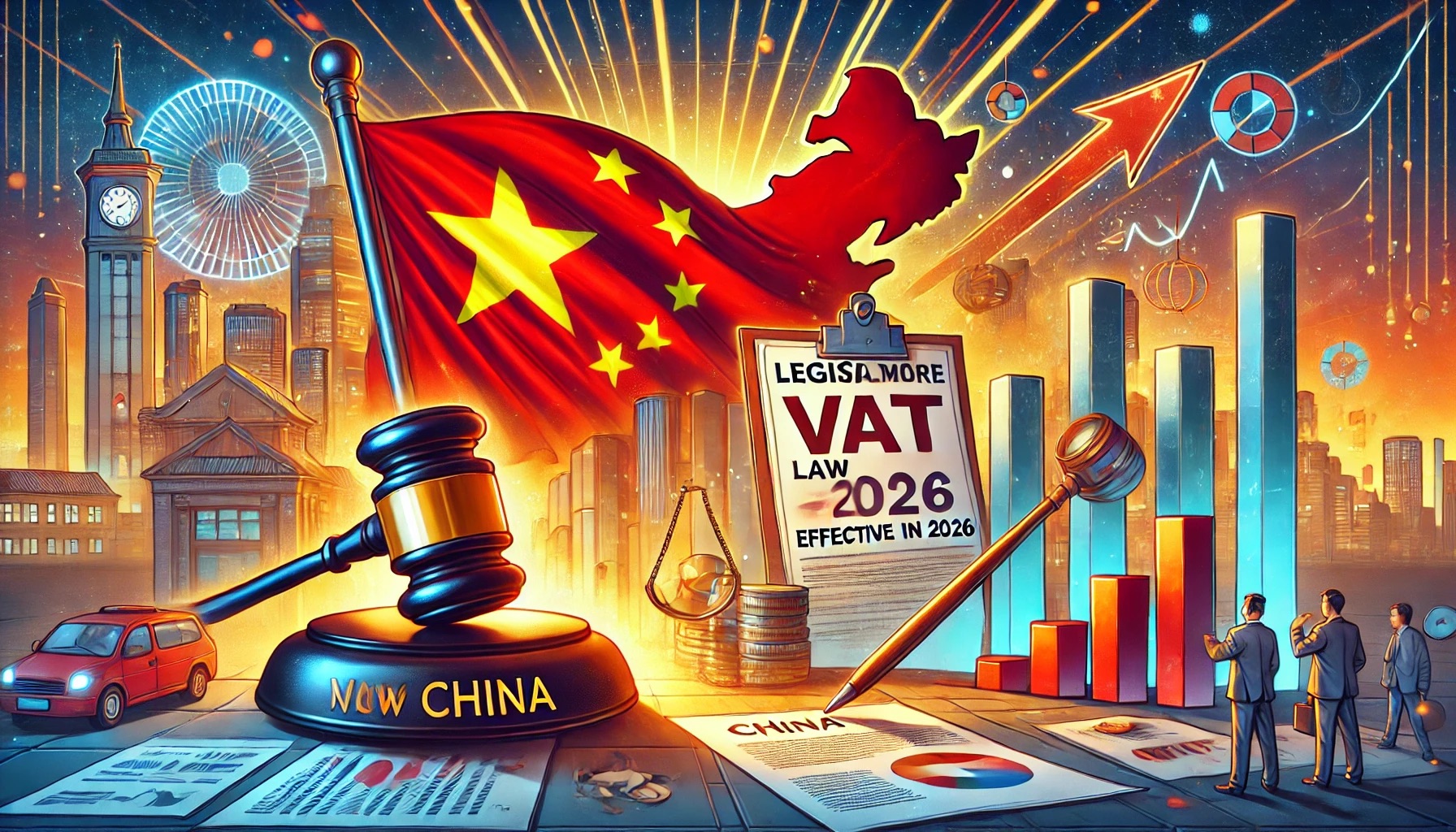China has passed a comprehensive value-added tax law, effective in January 2026, consolidating regulations and offering targeted exemptions for sectors like agriculture, research, and welfare institutions. The reform aims to support economic recovery as the nation tackles sluggish demand.
China Consolidates VAT Rules into New Law Effective 2026
According to official news agency Xinhua, China's legislature passed a value-added tax bill on Wednesday, with the new law set to go into force on January 1, 2026. The bill consolidates earlier rules that had contained exemptions from the tax into a single document.
According to official statistics, in 2023, over 38% of China's national tax revenue came from value-added taxes, the country's largest tax category, Investing.com reports.
Specific legal requirements were omitted from the report. A number of items and services offered by welfare institutions, including daycares, preschools, and nursing homes for the elderly, as well as certain agricultural products, were exempted in the most recent draft.
Targeted Tax Exemptions for Critical Sectors
If the government wanted to help out a particular industry or company, they could expand what can be claimed as a tax deduction.
"With the introduction of the VAT Law, 14 tax categories out of 18 in China have their own laws, covering the majority of tax revenue and marking significant progress of implementing the principle of statutory taxation," the news agency reported.
Following a session that started on Saturday, the National People's Congress Standing Committee—China's highest legislative body—passed the law.
Real Estate Market Receives Tax Incentives
To prop up its distressed real estate market, China offered tax incentives for home and land purchases last month. When a resident sells their home at least two years after purchasing it, they are not liable for value-added tax.
The finance ministry announced in September 2023 that it would prolong a value-added tax rebate program until the end of 2027 in an effort to encourage local and international research institutions to buy equipment built in China.
VAT Adjustments to Bolster Economic Recovery
In 2019, China reduced the value-added tax rate for production to 13% from 16% and for transportation and construction to 9% from 10%.
Revenue from value-added taxes fell 4.7% year-over-year in the world's second-largest economy's first eleven months, to 6.1 trillion yuan ($840 billion), as companies faced poor domestic demand. November saw a rise of 1.36 percent in VAT receipts.
"The rebound in VAT reflects improving economic vitality, as sales and business activity recover. It may also indicate a recovery in industrial profits, further supporting economic momentum," Tommy Xie, head of Asia macro research at OCBC, wrote in a note on Monday.



 Germany and China Reaffirm Open Trade and Strategic Partnership in Landmark Beijing Visit
Germany and China Reaffirm Open Trade and Strategic Partnership in Landmark Beijing Visit  Trump Warns Iran as Gulf Conflict Disrupts Oil Markets and Global Trade
Trump Warns Iran as Gulf Conflict Disrupts Oil Markets and Global Trade  Trump Touts Stock Market Gains and 401(k) Boost Amid Tariff Uncertainty
Trump Touts Stock Market Gains and 401(k) Boost Amid Tariff Uncertainty  Oil Prices Steady as US-Iran Nuclear Talks and Rising Crude Inventories Shape Market Outlook
Oil Prices Steady as US-Iran Nuclear Talks and Rising Crude Inventories Shape Market Outlook  China’s New Home Prices Post Sharpest Drop Since 2022 Amid Ongoing Property Slump
China’s New Home Prices Post Sharpest Drop Since 2022 Amid Ongoing Property Slump  MOEX Russia Index Hits 3-Month High as Energy Stocks Lead Gains
MOEX Russia Index Hits 3-Month High as Energy Stocks Lead Gains  Bank of Korea Holds Interest Rate at 2.50% as Growth Outlook Improves Amid AI Chip Boom
Bank of Korea Holds Interest Rate at 2.50% as Growth Outlook Improves Amid AI Chip Boom  PBOC Scraps FX Risk Reserves to Curb Rapid Yuan Appreciation
PBOC Scraps FX Risk Reserves to Curb Rapid Yuan Appreciation  Strait of Hormuz LNG Crisis Triggers Global Energy Market Shock
Strait of Hormuz LNG Crisis Triggers Global Energy Market Shock  Gold Prices Rally in February as Geopolitical Risks and Economic Uncertainty Boost Safe-Haven Demand
Gold Prices Rally in February as Geopolitical Risks and Economic Uncertainty Boost Safe-Haven Demand  U.S.-Canada Trade Talks Resume as Trump Administration Reviews USMCA
U.S.-Canada Trade Talks Resume as Trump Administration Reviews USMCA  IMF Urges U.S. to Cut Fiscal Deficit to Reduce Trade and Current Account Gaps
IMF Urges U.S. to Cut Fiscal Deficit to Reduce Trade and Current Account Gaps  Gold Prices Steady in Asia, Set for Strong February Gains on Safe-Haven Demand
Gold Prices Steady in Asia, Set for Strong February Gains on Safe-Haven Demand  Australian Dollar Rallies on Hawkish RBA Outlook; Yen Slips as BOJ Faces Political Pressure
Australian Dollar Rallies on Hawkish RBA Outlook; Yen Slips as BOJ Faces Political Pressure  U.S. Stocks Rally as Nvidia Earnings Loom, Oil Prices Near Seven-Month Highs
U.S. Stocks Rally as Nvidia Earnings Loom, Oil Prices Near Seven-Month Highs  U.S. Stock Futures Fall as Nvidia Drops Despite Strong Earnings; Netflix Jumps 9%
U.S. Stock Futures Fall as Nvidia Drops Despite Strong Earnings; Netflix Jumps 9% 































